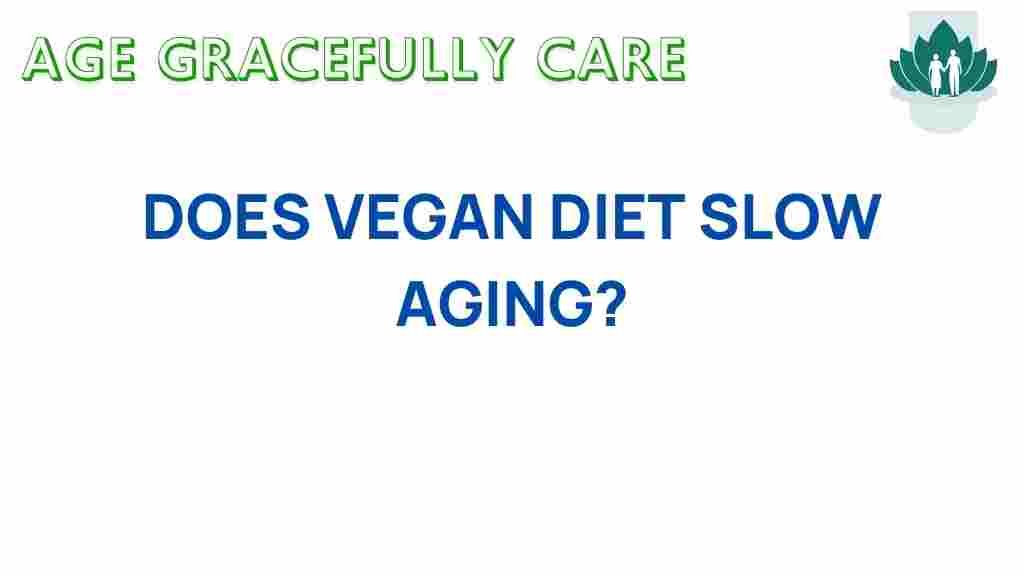Unveiling the Secrets: Does a Vegan Diet Truly Slow Aging?
The quest for longevity and maintaining youthful vitality has led many to explore the benefits of various dietary choices. Among these, the vegan diet has garnered significant attention for its potential effects on the aging process. But does adopting a plant-based nutrition lifestyle truly slow down aging? In this comprehensive article, we will delve into the health benefits of a vegan diet, how it interacts with the aging process, and the role of antioxidants and other factors that contribute to longevity.
Understanding the Vegan Diet
A vegan diet excludes all animal products, including meat, dairy, and eggs, focusing instead on fruits, vegetables, whole grains, legumes, nuts, and seeds. This dietary choice is grounded in ethical, environmental, and health considerations. But how does this lifestyle impact aging?
The Connection Between Diet and Aging
The aging process is complex and influenced by numerous factors, including genetics, lifestyle choices, and diet. Nutrition plays a critical role in how our bodies age. A balanced diet rich in vitamins, minerals, and antioxidants can help mitigate the effects of aging. Below, we explore the specific health benefits of a vegan diet related to aging.
Health Benefits of a Vegan Diet
- Rich in Antioxidants: Plant-based foods are abundant in antioxidants, which help combat oxidative stress. Oxidative stress is a significant contributor to the aging process, leading to cellular damage.
- Lower Inflammation: Many vegan foods have anti-inflammatory properties. Chronic inflammation is linked to numerous age-related diseases, including heart disease and arthritis.
- Improved Heart Health: A vegan diet has been shown to lower cholesterol levels and blood pressure, reducing the risk of cardiovascular diseases.
- Enhanced Skin Health: Nutrient-rich vegan foods can improve skin elasticity and hydration, contributing to a youthful appearance.
- Weight Management: A plant-based diet is generally lower in calories, aiding in weight management and reducing the risk of obesity-related conditions.
Antioxidants and Longevity
Antioxidants are compounds that protect your body from free radicals, unstable molecules that can cause cellular damage. A vegan diet is typically high in antioxidants. Foods such as berries, dark leafy greens, nuts, and seeds are all excellent sources. Here’s how antioxidants can play a role in slowing down the aging process:
- Protection Against Cellular Damage: Antioxidants neutralize free radicals, thereby protecting cells from damage.
- Support for Skin Health: Antioxidants like vitamins C and E can enhance skin health, combatting signs of aging like wrinkles and fine lines.
- Enhanced Immune Function: A strong immune system helps fend off illnesses that can arise with age.
Plant-Based Nutrition and the Aging Process
Transitioning to a vegan diet can significantly impact your overall health and how you age. By focusing on whole, plant-based nutrition, you can provide your body with the essential nutrients it needs. Here are some key components of a vegan diet that are particularly beneficial for aging:
- Vitamins and Minerals: Essential nutrients such as zinc, vitamin D, and calcium are crucial for maintaining bone health and overall vitality.
- Fiber: A high-fiber diet supports digestive health, regulates blood sugar levels, and aids in weight management.
- Healthy Fats: Plant-based sources of omega-3 fatty acids, such as flaxseeds and walnuts, support brain health and cognitive function.
Skincare and a Vegan Diet
A vegan diet not only promotes health internally but also reflects on the skin’s appearance. Many people who adopt a vegan lifestyle report improvements in their skin’s clarity and texture. The following vegan-friendly foods can enhance your skincare routine:
- Avocados: Packed with healthy fats, avocados help keep skin hydrated and plump.
- Berries: Their high antioxidant content helps combat skin aging and promotes a radiant complexion.
- Green Tea: Rich in polyphenols, green tea can protect your skin from UV damage and improve elasticity.
Making the Transition to a Vegan Diet
If you’re considering transitioning to a vegan diet to slow aging and improve health, here is a step-by-step process to help you get started:
- Educate Yourself: Learn about plant-based nutrition and what foods you will need to include in your diet.
- Start Gradually: Consider beginning with “Meatless Mondays” or replacing one meal a day with a vegan option.
- Plan Your Meals: Ensure you’re getting a variety of nutrients by planning balanced meals that include protein, healthy fats, and carbohydrates.
- Experiment with Recipes: Explore new recipes that excite your palate and make plant-based eating enjoyable.
- Join a Community: Connect with others who follow a vegan diet for support, recipes, and motivation.
Troubleshooting Common Challenges
Transitioning to a vegan diet can come with challenges. Here are some common issues and how to overcome them:
- Protein Deficiency: Ensure you include a variety of protein sources such as lentils, chickpeas, tofu, and quinoa.
- Missing Favorite Foods: Look for vegan alternatives to your favorite non-vegan foods, such as plant-based cheeses and meats.
- Social Situations: Communicate your dietary preferences with friends and family. Many restaurants now offer vegan options.
Conclusion: The Impact of a Vegan Diet on Aging
In conclusion, the evidence suggests that a vegan diet can offer numerous health benefits that may contribute to slowing the aging process. By incorporating rich sources of antioxidants, vitamins, and healthy fats, individuals can enhance their overall health, improve their skin’s appearance, and promote longevity. While adopting a vegan lifestyle may require adjustments, the potential rewards for your health and vitality are worth the effort. Embracing a vegan diet is not just a dietary choice; it is a lifestyle choice that can lead to a healthier, more youthful life.
For more information on plant-based nutrition and its benefits, explore resources available at Plant-Based Nutrition. Additionally, you can find community support and recipes by visiting Vegan Community Forums.
This article is in the category Health and created by AgeGracefullyCare Team
